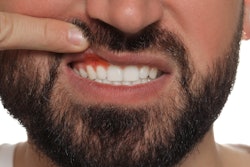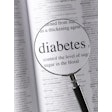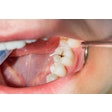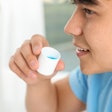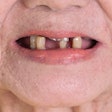
Patients with diabetes may be at a greater risk of caries compared to the general population; however, increasing dietary fiber intake may lower this risk. The study was recently published in Frontiers in Nutrition.
Furthermore, patients with a higher fiber-to-carbohydrate ratio (FCR) may have lower odds of untreated caries and overall caries experience, the authors wrote.
"Increasing the proportion of dietary fiber intake among diabetic patients may help prevent the occurrence of dental caries," wrote the authors, led by Xue Liang of the Fujian Medical University School and Hospital of Stomatology in China (Front Nutr, July 4, 2024, Vol. 11, 1440306).
Caries result from the localized destruction of tooth tissues by acidic byproducts from bacterial fermentation of dietary carbohydrates. Diabetes exacerbates oral complications, with higher caries prevalence and increased heart failure risk in diabetic individuals, they wrote.
This study used data from the 2015-2020 U.S. National Health and Nutrition Examination Survey database. FCR levels were categorized into two groups based on the median value of 0.13. The outcomes measured were untreated caries and overall caries experience. Caries experience was defined as having at least one tooth that is decayed, missing, or filled because of caries.
Multivariable logistic regression analysis was used to assess the associations between FCR and these outcomes. The analysis was further stratified by age (<65 years old and ≥65), gender, hypertension status, and the ratio of family income to poverty (PIR, <1 and ≥1), according to the study.
Of the 2,412 diabetic patients included in the study, 728 had untreated caries and 2,104 had caries experience. Patients with an FCR ≥0.13 had lower odds of untreated caries (odds ratio [OR] = 0.72; 95% confidence interval [CI], 0.52 to 0.99) and caries experience (OR = 0.63; 95% CI, 0.42 to 0.93) compared to those with an FCR <0.13, the authors wrote.
Furthermore, stratified analyses showed that an FCR ≥0.13 was associated with lower odds of untreated caries in patients under the age of 65 (OR = 0.64; 95% CI, 0.42 to 0.97), females (OR = 0.57; 95% CI, 0.35 to 0.93), those with hypertension (OR = 0.66; 95% CI, 0.45 to 0.96), and those with a PIR ≥1 (OR = 0.64; 95% CI, 0.42 to 0.99). Similar findings were observed for caries experience (p < 0.05), according to the results.
However, the study had limitations. While dietary intake included daily diets and supplements, it only reflected recent eating habits. Further research is needed to explore the impact of long-term dietary fiber and carbohydrate intake, the authors wrote.
"High levels of FCR may be associated with a lower risk of dental caries in patients with diabetes," they concluded.





